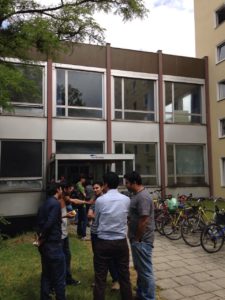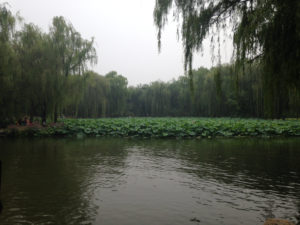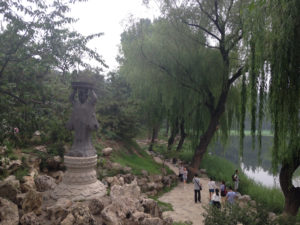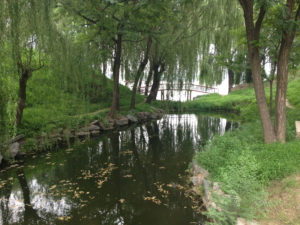- Reflect on your language learning and acculturation during your SLA Grant experience.
The opportunities afforded to me through the SLA Grant for French language study in Switzerland procured my improved comprehension, conversational skills, and cultural understanding of an additional corner of the Francophone world. As evidenced by my courses and interactions in a Francophone context, I perceive my language acquisition process as something that grows in complexity and capacity with each experience to exercise more nuance and precision. Before embarking on this summer language study, I had not explored the full breadth of strategies for building this nuance, especially through reading novels and short stories in French. My course of study and simultaneous independent learning began to open doors for understanding French rhetoric that requires greater complexity: humor, metaphors, hyperbole, and other stylistic devices that I had not previously engaged. During this language study experience, I held in mind the goals established at the onset of the program, and I feel that I have in large part accomplished them.
- Reflect on your SLA Grant experience overall.
On the whole, this language study experience exposed me to a small portion of the European Francophone world, a reflective contrast to the Francophone West African context in which I had previously studied the language. While in Senegal, French was something I consistently politically and historically associated with colonialist rule and imposition. It is an enduring mark of the harm done by France during its colonial period in Senegal and throughout much of the African continent, and it endures as a deep scar and conflicted tether to France still today. While in Switzerland, this dynamic political and historical pairing of language with post-colonialism discourse was largely void. In Geneva and the French-speaking portions of the country, French serves as a lingua franca, a means of conducting international negotiations within international organizations, businesses, and the United Nations itself. Insights about the cultural perceptions of language within the Francophone world have marked my notions of what it means to be a French language learner, someone who enters into the politics and power dynamics of the French language.
I would advise someone who was considering applying for an SLA Grant to discuss seriously the cultural context and spaces of identity to be occupied during their period of language learning. They should explore before departure the ways in which they are prepared to answer to questions about politics, power, and national identity while abroad. Most importantly, I would encourage students to use their advisor as a resource for thinking deeply about this grant in the context of personal and professional aims. I am extremely grateful to my advisor for her mentorship and encouragement in pointing me toward various possibilities as I formed my grant application, and would encourage others to seek the same form of feedback.
- How do you plan to use your language and intercultural competences in the future?
Perhaps the most anticipated and worthwhile portion of concluding my time in Switzerland is advancing and applying my improvements in language to other settings. For the remainder of my academic career at Notre Dame, French will be a cornerstone of my research inquiry and senior thesis. As a student of International Economics, French serves as my concentration language for which I will select a compilation of primary sources and academic publications for use in my thesis. In particular, I will be studying papers written by Senegalese academics, though Francophone European scholars’ work will also inform my analysis. Post-graduation, I am interested in pursuing research or work in another part of Francophone West Africa. I perceive my French studies as inseparable from learning about economics; the history of the linguistic imposition of French through colonial rule is a root identity marker of socio-economic disparity in the global south. Already, the professional implications of French have presented themselves in internships and fieldwork research environments. I look forward to continuously investing in my capacity and passion for the language.







